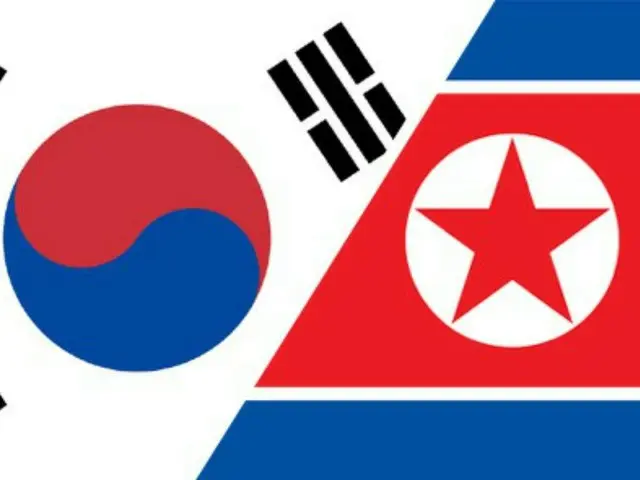According to South Korea's Yonhap News Agency, citing the South Korean Joint Chiefs of Staff, about 260 pieces had been found as of 4 p.m. on the 29th.
This is believed to be a retaliation against the distribution of leaflets criticizing the Kim Jong Eun regime in North Korea. North Korea has traditionally strongly opposed the distribution of leaflets by defector groups,
Even now, leaflets have been a thorn in the side of the deterioration and breakdown of North-South relations. In 2020, North Korea, in reaction to the distribution of leaflets, blew up the Inter-Korean Liaison Office.
He also warned that "psychological tactics such as these will be the trigger for the end of the Republic of Korea," so future developments will need to be closely watched.
The balloons were launched by North Korea toward South Korea from the night of the 28th, and fell in various parts of South Korea.
The balloons have been found not only in areas close to North Korea, such as Gangwon Province, but also in the southern provinces of Gyeongsang and Jeolla. According to Yonhap News, the balloons are 3 to 4 meters long.
"North Korea released about 1,000 balloons a year from 2016 to 2017, but it is now releasing hundreds of balloons a day," Yonhap said.
"It is unusual for North Korea to release balloons," the report said. In South Korea, a chemical weapons response team and an explosives disposal team were dispatched to retrieve the balloons and are conducting a detailed analysis. The South Korean Joint Chiefs of Staff said, "Such an act by the North is unacceptable.
"The North Korean balloons clearly violate international law and are a serious threat to the safety of our people," he said. "All responsibility for the consequences of these balloons rests entirely with the North, and we must immediately put an end to these immoral and despicable acts."
Prior to this incident, North Korea's Vice Minister of Defense Kim Kang-il, in a statement released on the 26th of this month, mentioned that a group of North Korean defectors in South Korea was distributing leaflets.
"You will soon see a lot of paper and filth scattered around, and you will get to experience firsthand how much work it takes to remove it," he teased.
North Korea has always strongly opposed the distribution of leaflets by defector groups, and has even taken violent action in response to such distribution. In June 2020, Kim Jong Un's sister, Kim Il Sung-il, was arrested after being identified as Kim Jong Un.
Kim Yo-jong issued a statement: "We must make the traitors and scum realize the magnitude of the crimes they have committed. They will soon realize the seriousness of the damage they have done to our great dignity.
A few days after he warned that North Korea would "never allow the North Koreans to leave the country," North Korea blew up the inter-Korean liaison office in Kaesong, southwest of the country. The explosion of the inter-Korean liaison office shocked the world, and Moon Jae-in, who was then in power,
The Moon Jae-in administration has embarked on a legal reform to ban the scattering of leaflets in North Korea, citing the danger it could pose to residents along the military demarcation line. In December 2020, the ruling Democratic Party of Korea (DPJ)
Despite opposition from the party, the "anti-North Korea leaflet ban law" was passed and enacted. However, human rights groups that distributed leaflets were opposed to this law, arguing that it violated the "freedom of expression" enshrined in the South Korean constitution.
The United Nations and other international organizations have also expressed concern, arguing that the bill would impede the rights of North Korean residents.
In September last year, South Korea's Constitutional Court ruled that the law "excessively restricts freedom of expression," finding the ban on leaflet distribution unconstitutional and invalidating the law.
In response to this decision, North Korea stated that, in light of the situation in Ukraine and the series of clashes between Israel and Hamas, "We are prepared to face military conflict on the Korean Peninsula."
However, leaflet distribution has become more active again in South Korea, and on the 10th of this month, the North Korean defector group "Free North Korea Movement Union" distributed 300,000 leaflets criticizing the Kim Jong Un regime and K-POP
North Korea's recent release of balloons with filth and other materials tied to them is believed to be a countermeasure against this.
North Korea carried out a similar act in 2016, which resulted in damage to vehicles and homes, but nothing has been confirmed to have happened this time.
North Korea also sent jamming signals to the South Korean side from near the Northern Limit Line (NLL).
The South Korean government also sent out waves, but no damage was reported. A senior official at the South Korean presidential office said, "It appears they are testing how this psychological warfare will work in South Korea."
2024/05/30 11:02 KST
Copyrights(C)wowkorea.jp 5

